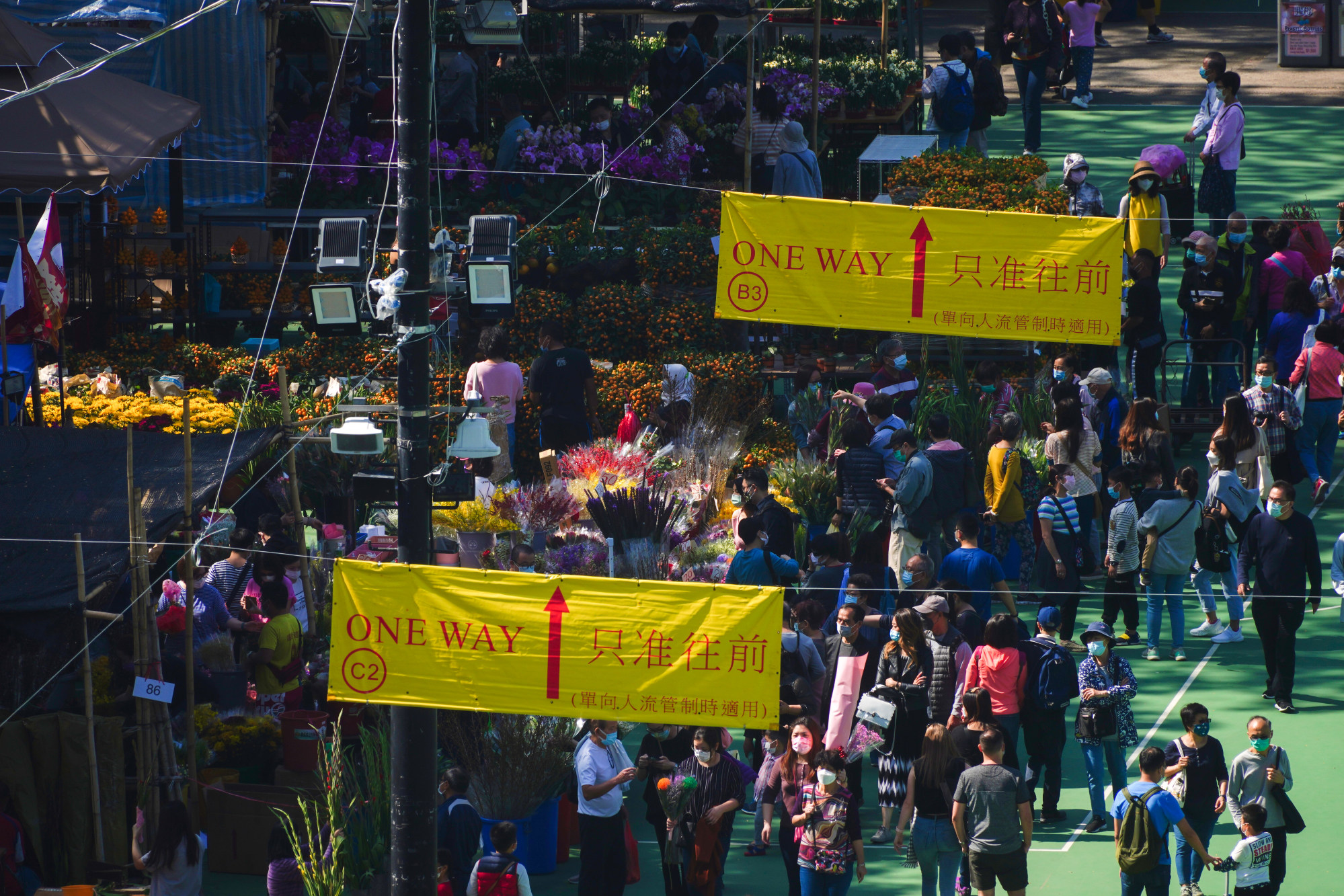
Hong Kong bans dry goods stalls at Lunar New Year fair for fourth year in a row citing coronavirus concerns
- Only wet goods stalls for farmers to sell flowers will be allowed at 2023 fair, says authorities
- Dry goods stalls, which sometimes sold politically themed products, were first banned in 2020 because of ‘current social situation’
Hong Kong has banned dry goods stalls at the Lunar New Year fair in 2023, citing pandemic reasons, despite the city making recent efforts to resume normal life and host large-scale events.
In a statement on Wednesday, the Food and Environmental Hygiene Department announced that the fair would span seven days from January 16 to 22, 2023, involving a total of 922 stalls at 15 locations. An open auction for those spots will start on November 9.
But in a move that will disappoint dry goods vendors and start-up entrepreneurs for the fourth year in a row, the department said the fair will only provide wet goods stalls for farmers to sell flowers.

“Under the epidemic, it remains the case that the 2023 Lunar New Year fairs will not provide dry goods stalls,” a spokesman said. Food will also not be sold at the fairs, for the third year in a row.
“No fast food stalls will be provided to avoid increasing the risk of virus transmission through removing masks for eating,” the spokesman added.
In the past, politically themed products, as well as lucky windmills and balloons, were among the festive items popular with fair-goers. But in 2020, officials cited the “current social situation” – a reference to the anti-government protests at the time – as the reason for prohibiting the sale of dry goods at the fairs.
XBB may become dominant Covid-19 strain in Hong Kong, health expert says
While the festival was considered an important time for flower farmers to sell their produce, some start-ups and small businesses, including secondary school students, have used the occasion to test their business skills.
As the city’s fifth coronavirus wave subsided earlier this year, it had gradually opened up to the world by scrapping hotel quarantine and only requiring arrivals to do three days of home surveillance, as well as scaling back most of the local curbs.
Hong Kong team pair Kwok and Wong claim titles in New World Harbour Race
Last week, the city hosted its popular cross-harbour swimming competition, while officials also gave the green light to operators to host the Rugby Sevens with eating and drinking allowed at the stadium next month. The city is due to host a Global Financial Summit for bankers and top financiers on November 1 to 3 as a bid to attract foreign investment.
Asked whether the ban on dry goods stalls went against the grain of recent health policymaking, respiratory medicine specialist Dr Leung Chi-chiu argued that it would all depend on whether there was a winter surge of Covid-19, and the emergence of a new variant.
“ln case there is a major winter wave, mask wearing alone cannot prevent transmission at an overcrowded event where people are moving around,” he suggested. “Crowd control may still be needed if we do experience a major winter wave near Lunar New Year.”

Ramon Yuen Hoi-man, Democratic Party’s health spokesman, however said he could not see why the selling of dry goods would carry a higher health risk than wet goods.
“Even more worrying is the bad signal it sends to the public and the world. Does it mean the government still does not have a road map and timeline to return city life to normal, if it cannot even allow dry goods to be sold outdoors by January next year?” he said.
Hong Kong moves to nullify 20,000 Covid jab exemptions after law changed
On Wednesday, the city confirmed 5,403 coronavirus infections, including 388 imported ones, as well as seven more related deaths. The overall tally now stands at 1,891,631, with 10,350 fatalities.
Separately, pandemic expenses topped the list of additional fund requests made by the government to the Legislative Council on Wednesday. Of the HK$35.1 billion (US$4.5 billion) total, the offices of the chief and financial secretaries had called for HK$26.8 billion for the anti-epidemic fund, while the Health Bureau asked for HK$1.6 billion for community Covid-19 testing.
